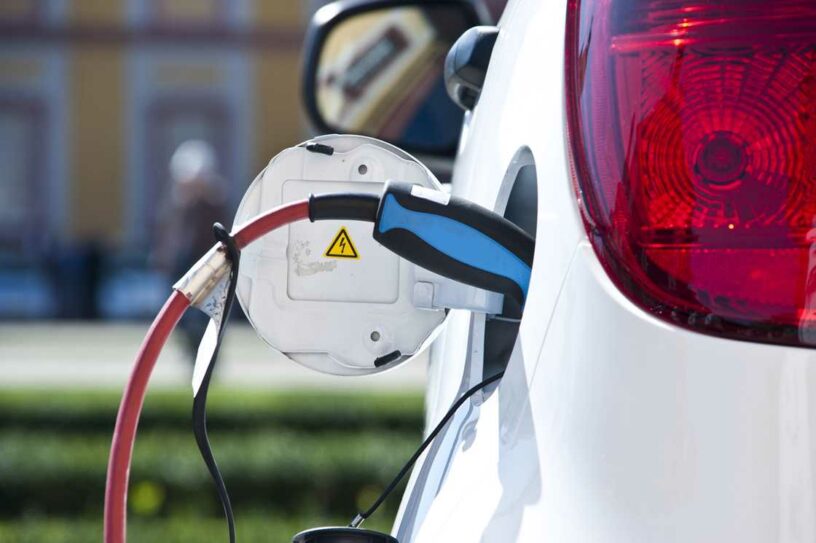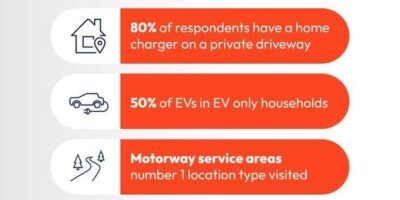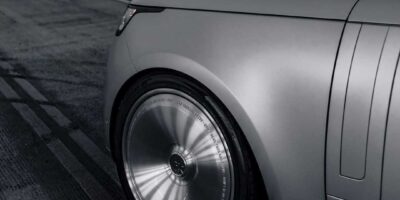Electric vehicles have higher MOT failure rates than equivalently aged hybrid and petrol vehicles, new research by BookMyGarage.com has found.
The DVSA data1, obtained via Freedom of Information request, showed electric vehicles have a MOT failure rate of 11.4% for three-year-old vehicles, which rises to 21.8% for six-year-old vehicles.
At 11.2%, three-year-old hybrid vehicles are marginally less likely to fail but six-year-old vehicles are some 29% less likely to fluff their MOT than EVs.
Petrol vehicles have a failure rate of 10.7% after three years, meaning they’re 6% more likely to pass than electric vehicles of the same age.
The study by the MOT and servicing price comparison site found diesel vehicles to be the worst performing fuel type, with 15.1% of three-year-old vehicles failing. However, six-year-old diesels shared a similar failure rate to electric vehicles at 21.4%.
| Fuel Type | Vehicle Age (years) | MOT Failure Rate (%) |
| Diesel | 3 | 15.1 |
| 4 | 15.8 | |
| 5 | 18.1 | |
| 6 | 21.4 | |
| Electric | 3 | 11.4 |
| 4 | 13.5 | |
| 5 | 16.9 | |
| 6 | 21.8 | |
| Hybrid | 3 | 11.2 |
| 4 | 12.0 | |
| 5 | 13.3 | |
| 6 | 15.4 | |
| Petrol | 3 | 10.7 |
| 4 | 12.5 | |
| 5 | 16.4 | |
| 6 | 19.1 |
Initial MOT failure rates of Class 4 vehicles aged three to six years old
“One of the benefits of driving an electric vehicle is the reduction in maintenance required,” said Karen Rotberg, Co-founder of BookMyGarage.com. “Service intervals are typically longer than the interval for many petrol or diesel vehicles, and fewer components or fluids need replacing during the service itself. However, this doesn’t mean electric vehicles are immune to safety defects. In fact, because electric vehicles are generally much heavier than vehicles with internal combustion engines, wear on some components – such as tyres – can be greater.”
Tyres are responsible for 22% of all electric vehicle MOT failures, compared to just 12% for all fuel types.
“With electric vehicles requiring less maintenance, it’s likely they’re making fewer visits to workshops, which means fewer safety inspections are being carried out to check for potential defects. This data highlights the importance of regular servicing and safety checks on electric vehicles, even though their service schedules are simpler, to ensure any defects are found before they become dangerous,” Rotberg continued.
The Freedom of Information (FOI) request to DVSA also revealed the rapidly increasing number of electric vehicles being MOT tested each year. In 2021, nearly 76,000 electric vehicles were tested, a 36% rise on 2020 and 68% increase on 2019.
However, with 337,0002 electric vehicles registered in the last three years alone, this figure is expected to boom over the coming years and garages will need to be prepared to take on significantly more MOT, servicing and repair work on EVs.
Rotberg added, “Our EV servicing badge helps customers find and book with garages that are equipped to service EVs. Consumers should remember that even if they’re only booking their EV in for a MOT test, it’s possible that repairs may be required as a result of a failed test, and this is where more specialised electric vehicle knowledge and training might be needed.”
“This data isn’t a reflection of electric vehicles being any less reliable than other fuel types, but with them generally making fewer visits to garages it does highlight the importance of owners carrying out regular checks to ensure their vehicle is always in a roadworthy condition.”
Drivers are advised to regularly carry out basic checks themselves on components such as the tyres, lights, windscreen wipers and windscreen, and keeping on top of this maintenance can reduce the chances of failing an MOT test.
BookMyGarage.com recently launched a new electric vehicle hub, providing motorists with a comprehensive overview of electric vehicle ownership and purchasing advice. It also added the ability to compare local prices for servicing electric vehicles.
*Article Source www.BookMyGarage.com








